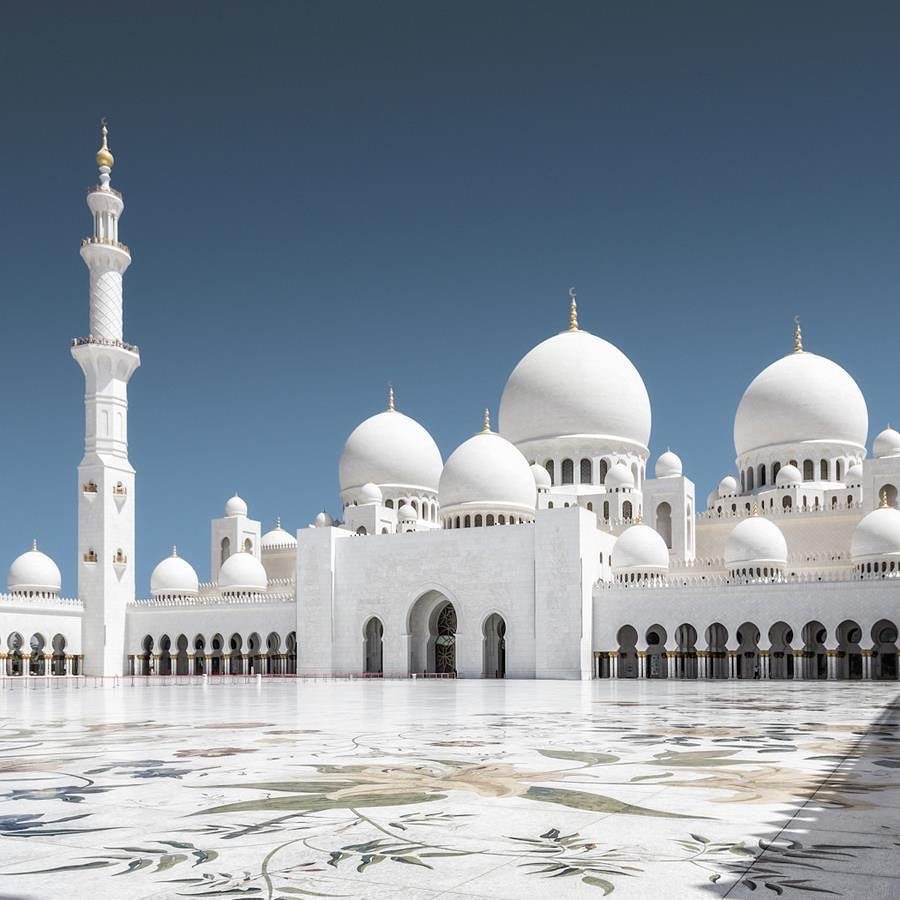Ramadan, the ninth month of the Islamic calendar, is the month of the revelation of the Quran to the Prophet Muhammad. Muslims all over the world fast from dawn to sunset during this month in adherence to one of the Five Pillars of Islam (sawm). Ramadan officially begins after the visual confirmation of the crescent moon and lasts until the sighting of the new moon approximately 30 days later. This year, Ramadan starts at sundown on May 5th and lasts until June 4th. During this time, healthy, practicing Muslims refrain from eating, drinking, and smoking from suhoor, the pre-fast meal until the evening fast-breaking meal, iftar. Fasting renews awareness and gratitude for God’s provisions; it is a time of self-control and sustained discipline in pursuit of a deeper relationship to God.
Traveling to a Muslim country during Ramadan is a unique opportunity to learn about and experience this religious practice. Ramadan is a celebration of community and togetherness for Muslims separated by oceans but linked by devotion to their faith. For many travelers to the Middle East, Ramadan is a special time to gain unique insights into the Middle East. However, there are a few things to take into consideration during your travels.

1. When is Ramadan?
The Islamic calendar follows the lunar cycle, meaning that the dates for the beginning and ending of Ramadan change every year. Suhoor signals the start of the day, with families rising together to partake in a shared meal before the fajr prayer. During the day, most Muslims go about their daily routines, although in some Middle Eastern countries work hours might be shortened and schools might close early.
At sundown, fast ends with iftar, a light snack, before the evening prayer and a larger meal that is often enjoyed with family. Some countries with longer days such as Denmark or Sweden prefer to follow the fasting schedule of Mecca or a nearby country with a large Muslim population. Still, some choose to follow the local time, meaning that their fast could last up to 20 hours.

By Wikiemirati – Own work, CC BY-SA 4.0, https://en.wikipedia.org/w/index.php?curid=57338664
2. Prayer
While the most visible aspect of Ramadan is the fast, central to Ramadan is prayer. Throughout the year, Muslims practice salat, or the ritual of daily prayer. During the month of Ramadan, these prayers become more significant, and Sunni Muslims add a special prayer (Tarawih) after Isha, the evening prayer.
3. Dress
In most Muslim countries dressing conservatively is the norm. During Ramadan, it is especially important to avoid causing offense by covering up in public. In order to avoid undue attention, it is a good idea for women to cover their chest and shoulders and wear long trousers or skirts. Both men and women should avoid wearing sleeveless tops and shorts.

4. Etiquette
Be aware that some countries restrict public eating, drinking, and even chewing gum. For example, in countries like the United Arab Emirates, you can be fined. In more conservative countries like Saudi Arabia, foreigners have even been imprisoned or deported for eating or drinking in public. In most countries, travelers can expect restaurants and many shops to be closed during the day. Additionally, drinking and partying is forbidden. Many bars or liquor stores will be closed for the duration of the month. Regardless of varying laws, it is considerate to show respect to those who are fasting by not eating or drinking in public.
From sunrise to sunset, Muslims abstain from any sexual activity. Moreover, public displays of affection and loud music may offend some Muslims. During this month of holy reflection, many try to curb their thoughts. They also veer away from gossip and swearing in order to prioritize their relationship with God.
During this time, Generosity is at a high. It is believed that Ramadan is a time to stock up on good deeds and compassion for those less fortunate. For this reason, you will see wealthy people or communities sponsor street parties in countries like Egypt. Long tables filled with food are commonplace. Travelers and commuters may be stopped on the side of the road at iftar and offered bottles of water and dates.
Even if you are not Muslim, you may fast if you want. In fact, many who choose to do so find that it brings them closer to the local community and gives them a new perspective on Islamic culture. Being invited to an iftar is a fascinating and delicious way to experience this religious holiday. However or wherever you are observing Ramadan this year, we hope that it is peaceful and happy. Ramadan Kareem from CAI.
Special thanks to Mai Hegazy.
Cultural Awareness International, Inc. (CAI) has 30 years of remarkable history working with HR and Business Leaders to create unique, personalized solutions that develop their employee talent to perform skillfully in the global marketplace. A woman and minority, privately owned and operated company, we holistically address organizational needs for global competency development, diversity and inclusion training, intercultural communication and global leadership with flexibility and innovation.
Additionally, we provide comprehensive destination services that assist both assignees and their families in relocating to a new home and settling into their new community. Our experience collaborating with global companies across all industries and scope gives us invaluable insight to anticipate and address our clients’ needs. Our solutions target not only the needs of globally mobile individuals and their families but also that of teams and senior leadership. CAI’s expertise, creativity, and agility deliver the best sustainable solutions to hone and enhance the skills of your globally mobile talent.

